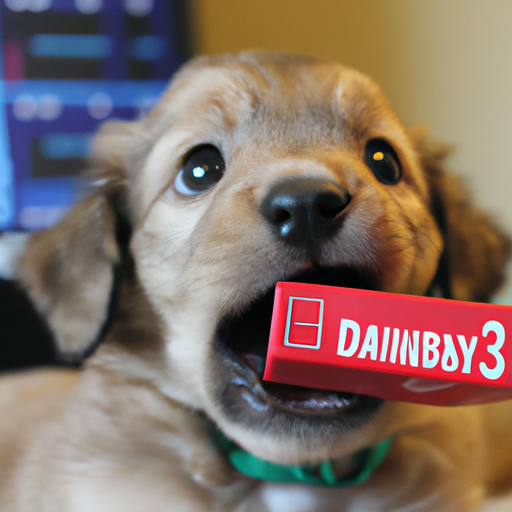Understanding Canine Teething
Just like humans, dogs also go through a phase of teething during their growth. As a caregiver, understanding this process is essential to ensure the well-being of your furry friend. Teething can be uncomfortable for puppies and can lead to behavioral changes. It usually starts when they are around three weeks old and can last until they are six or seven months old.
Stages of Puppy Teething
Teething in dogs happens in different stages:
-
Birth to 3 weeks: Puppies are born without teeth. During this time, they rely entirely on their mother’s milk for nutrition.
-
3 to 4 weeks: This is when the first set of teeth, also known as deciduous or milk teeth, begin to appear. Puppies have about 28 milk teeth.
-
4 to 6 months: The milk teeth begin to fall out to make way for adult teeth. This period is often the most uncomfortable for puppies and when you may notice more chewing behaviors.
-
6 to 7 months: By this age, most dogs should have a full set of 42 adult teeth.
Remember, these are general guidelines and the exact timing may differ depending on the breed and individual dog.
Signs Your Dog is Teething
During teething, your dog may exhibit certain behaviors or symptoms. Here are some signs to look out for:
- Increased chewing
- Drooling
- Missing teeth
- Bleeding gums
- Irritability
- Difficulty eating
How to Help Your Teething Puppy
As a caregiver, there are several steps you can take to ease your puppy’s discomfort during this time:
-
Chew Toys: Provide your puppy with a variety of chew toys. These not only help soothe their gums but also keep them from chewing on inappropriate items.
-
Cold Treats: Just like with human babies, cold can help numb the puppy’s gums and provide relief. Consider freezing a wet washcloth for your puppy to chew on.
-
Puppy-Safe Pain Relief: If your puppy seems to be in a lot of pain, speak to your vet about safe options for pain relief.
Potential Teething Problems
While teething is a normal part of a puppy’s development, there can be complications:
-
Persistent Baby Teeth: Sometimes, a puppy’s baby teeth don’t fall out as they should, causing problems when the adult teeth come in. This is a condition that needs to be addressed by a vet.
-
Broken Teeth: Dogs, especially aggressive chewers, can break their teeth. Broken teeth can be painful and lead to infection.
-
Gingivitis: This is inflammation of the gums and can be caused by plaque buildup on the teeth.
Dental Care for Dogs
Maintaining your dog’s dental health doesn’t stop once the teething phase is over. Regular dental care is important throughout their lives. Some tips include:
- Regular brushing of your dog’s teeth
- Providing dental chews and toys
- Regular check-ups with the vet
FAQ
Q: Do all dogs go through teething?
Yes, all dogs go through teething as puppies, typically between three weeks and seven months of age.
Q: Can teething cause my dog to lose its appetite?
Teething can cause discomfort that may make your dog less interested in food. Try softer foods if you notice a decrease in appetite.
Q: How can I tell if my dog’s teeth are healthy?
Healthy teeth are clean, white, and free of any brownish tartar. The gums should be pink and not swollen or bleeding.
Q: How often should I brush my dog’s teeth?
Ideally, you should brush your dog’s teeth daily, but a few times a week can also be beneficial.
Q: What should I do if my dog’s baby teeth don’t fall out?
If the baby teeth don’t fall out as the adult teeth come in, it can lead to problems. You should consult your vet, who may need to remove the baby teeth.



